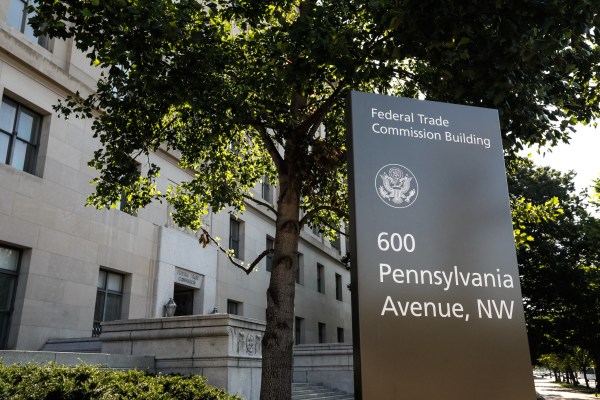[ad_1]

Spurred by the rising risk of deepfakes, the FTC is searching for to change an present rule that bans the impersonation of companies or authorities companies to cowl all customers.
The revised rule — relying on the ultimate language, and the general public feedback that the FTC receives — may also make it illegal for a GenAI platform to supply items or providers that they know or have cause to know are getting used to hurt customers via impersonation.
“Fraudsters are utilizing AI instruments to impersonate people with eerie precision and at a a lot wider scale,” FTC chair Lina Khan mentioned in a press launch. “With voice cloning and different AI-driven scams on the rise, defending People from impersonator fraud is extra crucial than ever. Our proposed expansions to the ultimate impersonation rule would just do that, strengthening the FTC’s toolkit to handle AI-enabled scams impersonating people.”
It’s not simply of us like Taylor Swift who’ve to fret about deepfakes. On-line romance scams involving deepfakes are on the rise. And scammers are impersonating workers to extract money from companies.
In a latest ballot from YouGov, 85% of People mentioned they have been very involved or considerably involved concerning the unfold of deceptive video and audio deepfakes. A separate survey from The Related Press-NORC Middle for Public Affairs Analysis discovered that just about 60% of adults suppose AI instruments will improve the unfold of false and deceptive info throughout the 2024 U.S. election cycle.
Final week, my colleague Devin Coldewey coated the FCC’s transfer to make AI-voiced robocalls unlawful by reinterpreting an present rule that prohibits synthetic and pre-recorded message spam. Well timed in mild of a telephone marketing campaign that employed a deepfaked President Biden to discourage New Hampshire residents from voting, the rule change — and the FTC’s step at this time — are the present extent of the federal authorities’s struggle towards deepfakes and deepfaking know-how.
No federal regulation squarely bans deepfakes. Excessive-profile victims like celebrities can theoretically flip to extra conventional present authorized cures to struggle again, together with copyright regulation, likeness rights and torts (e.g. invasion of privateness, intentional infliction of emotional misery). However these patchwork legal guidelines might be time-consuming — and laborious — to litigate.
Within the absence of congressional motion, 10 states across the nation have enacted statutes criminalizing deepfakes — albeit largely non-consensual porn. Little doubt, we’ll see these legal guidelines amended to embody a wider array of deepfakes — and extra state-level legal guidelines handed — as deepfake-generating instruments develop more and more subtle. (Living proof, Minnesota’s regulation already targets deepfakes utilized in political campaigning.)
[ad_2]
Supply hyperlink

